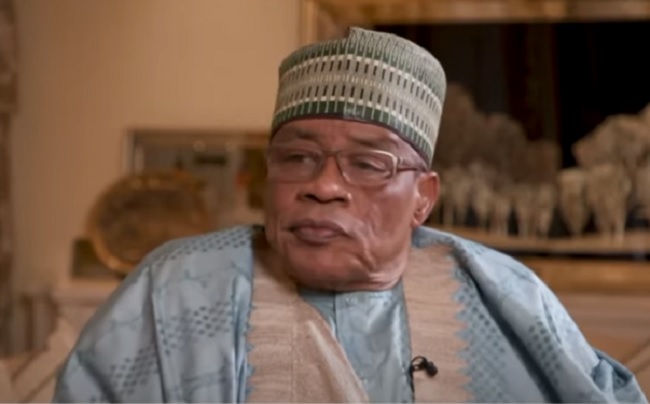Nigeria’s first federal election upon independence ended disastrously, with the United Progressive Grand Alliance (UPGA) refusing to participate in the elections on the ground of irregularities. On the eve of the poll, the major alliance of southern political parties, backed by the ceremonial President, insisted on a postponement of the election as the only way to bring about a free and fair expression of opinion. When the demand was denied, political leaders from southern Nigeria boycotted the election. Nevertheless, the election held, and the Northern Peoples Congress (NPC) and its allies went ahead to win the election with a majority of seats. The consequent events led to Nigeria tottering ‘perilously on the brink of disintegration and bloodshed’, as the President in an open disagreement with the Prime Minister threatened to resign rather than carry out his constitutional duty to invite the NPC to form a government. Sixty years later, the credibility of elections in Nigeria is almost worse than the experience in the 60s.
Whereas electoral irregularities occur in almost all democracies around the world, every country must constantly pursue processes that improve their electoral systems, as the foundation of a country’s credible leadership is credible election. It is irreconcilable, the paradox of progress in Nigeria’s electoral process, particularly in a digital age, where almost all human interactions are digitized for efficient results. To contextualize my immediate concern, it ruffles logic, that a country like Nigeria with one of Africa’s brightest communities of successful tech and digital entrepreneurs and citizens, is confined to the affliction of politically intended electoral irregularities. From the historical 1959 federal election that throttled Nigeria to independence in 1960, to the keenly contested electoral outcome of 2023 general elections, Nigeria has continued to seek electoral reforms for a transparent, credible, free and fair electoral processes without success.
Notwithstanding that till date, no free or open-source electronic voting systems have been used on a large national scale in any country, the Nigerian Bar Association’s recent National Executive Committee’s election presents a model that should guide Nigeria to leverage digital technologies for credible and inclusive elections. You cannot be an objective lawyer, who voted in the last NBA election, and will not question the rationale for INEC’s sustained failure to leverage the electoral legal framework to build a safe, seamless and real-time e-voting system, that allows for a hybrid Bimodal Voter Accreditation System (BVAs), digitize the accreditation systems which will allow Nigerians anywhere in the world to vote either virtually or physically, ensure that votes cast at physical polling units are reflected real-time on the Election Result Viewing Portal (IReV), and provide credible electoral outcomes. NBA’s e-voting system is not perfect, but since it was adopted by the NBA’s 27th President, Augustine Alegeh (SAN) in 2016 following the controversy that characterized the election that produced his administration in 2014, NBA’s e-voting system which replaced the old delegates system, has helped to reduce campaign expenses and ensures seamless voting process. After four subsequent deployments of the e-voting system in NBA elections, the system has significantly improved.
If election is about people and the system seeks to ensure that the people truly participate in exercising their free will to choose their leaders, a hybrid voting model that is secure, inclusive and efficient is required. With the level of entrenched electoral irregularities in Nigeria, an integrated hybrid model of voting remains a realistic option for sanitizing the system. As Nina Wudiri puts it, the “purchased participation of the people in a democracy cannot be stopped by the rhetoric that ‘once you sell your vote, you have sold your voice’, particularly in the face of poverty and illiteracy.” The best way to deepen the freedom of the people to express their free will is to improve on election technology that helps to reduce the tendency of human inference and compromise. By advancing election technology, we can reduce the logistical challenges in delayed delivery of electoral materials, reduce widening apathy, eliminate ballot box fraud and reduce electoral violence.
We have barely two years and five months to the 2027 general elections, to restore voters’ confidence, INEC must galvanize relevant stakeholders to amend Sections 40, 60, 64, among others sections of the Electoral Act, 2022 to ensure that the accreditation, voting, collation and announcement components of the electoral process, which are mainly a manual process at the moment, are made hybrid, allowing for the BVAs to be used for both accreditation and voting, with votes cast reflecting real-time. INEC must further continue to develop a safe technology for digital voting – every eligible electorate should be able to vote from anywhere in the world. Voting should be through a hybrid model that allows for physical and digital voting; ballot paper should only be allowed as a last resort in cases where both the BVAs and digital voting channels fail. Like the NBA voting portal, once you verify your unified unique identification number, the voting portal should direct you to select and vote your candidates of choice, and click submit to cast your vote.
Notwithstanding that some countries have tried e-voting and had to stop, due to concerns about digital security and reliability, Nigeria must continue to develop its version of e-voting tech. No doubt, there will be challenges, particularly with merely 43.53 per cent broadband penetration in Nigeria as at February 2024, and the unavoidable possibility of cyber-attack on such platform, our electoral legal framework must broaden the scope of treason to include cyber-attack on our electoral infrastructures such as the e-voting platform.
Those who hold the backward brief that poor internet services, possible voting platform breach, likely conflict of interest, and other related challenges, are sufficient reasons to continue to conduct analog and easily manipulated elections, must first realize that it is not possible that there is an impossible social problem that cannot be solved with a rational, purposeful, transformational, focused, resilient and sincerely transparent leadership.
Ekpa, a lawyer and leadership




 8 hours ago
22
8 hours ago
22









 English (US) ·
English (US) ·